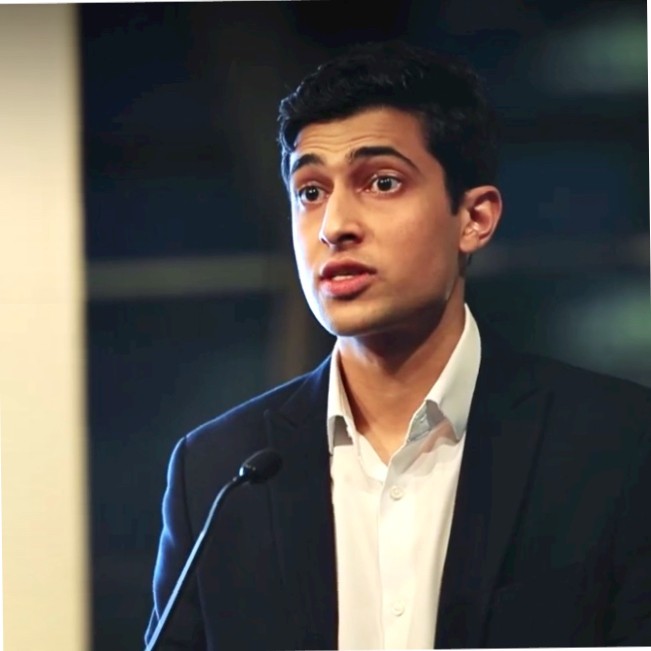
With the advancements of artificial intelligence, the increasing use of online courses to further education, and people looking more globally for jobs, there’s no guessing why Learnisa has found the success it has. Green.org sat down with Learnisa CEO, Dev Sangha, to learn how he built a business around using artificial intelligence to make education more efficient.
Contents
- 1 Tell us a little bit about you and your background:
- 2 What would you do with $1 Billion dollars?
- 3 Why do you think climate change and sustainability is such an important topic today?
- 4 What do you envision your industry looking like 10 years from now?
- 5 What can the average person do to make a difference?
- 6 Dev, thank you for sharing how you are using artificial intelligence to make education more efficient.
Tell us a little bit about you and your background:
Where do I begin? I’m a Medical Scientist turned Tech Entrepreneur with a passion for learning and education. After getting a degree in Medical Science, I soon realised that my passion went beyond the Medical field and so I decided to explore new jobs in new industries…and leverage online courses to help me gain the skills to do so. Online courses are great because you can literally gain an education from the most prestigious institutions, such as Harvard University or Google, from the comfort of your own sofa. However, with so many courses available across so many different providers, I struggled to find content that was best suited to me, my career ambitions and my skillset. After conducting some research, I realised the notion of course discovery was actually a very big problem in the industry, leading to many inefficiencies such as high course drop-off rates.
Hence, I founded Learnisa which is a platform that uses AI to best-match people to the most suitable online courses, out of thousands available online. …And we didn’t stop there. We also received some funding to apply our technology to not only match people to learning content but also job vacancies, given a significant proportion of people take online courses in order to secure new jobs.
Learnisa has been funded by the UK’s Department for Education and is listed as a Global Top 100 Project using AI to solve the UN Sustainable Development Goals by IRCAI (UNESCO). …Oh and I’m a massive Arsenal FC fan.
What would you do with $1 Billion dollars?
For me, education is the biggest opportunity anyone can have. Due to technological advancements and the impact of Covid-19 across industries, there has never been a greater need for adults to re/upskill in order to keep, find and secure employment. Boosting people’s skills can not only boost incomes, GDP and economic growth across economies…but it can also be used to alleviate poverty and inequality.
I would invest in optimising and scaling Learnisa’s technology so that there are adequate, inclusive and accessible solutions in place to facilitate this increased need for developing skillsets across populations. Beyond that, I would look to set up foundations to support people who may struggle to fund or otherwise access training opportunities. …and I’d probably buy a box at Arsenal FC.
Why do you think climate change and sustainability is such an important topic today?
It is essential to not only preserve a quality of life for the current generation but maintain this for future generations at the very least. Unfortunately, we are already seeing the impacts of climate change and it is important that sustainable and environmentally friendly policies are engrained within our infrastructure and not just at surface level. Within that, online learning is facilitating a more sustainable, climate friendly approach to education.
Online courses can be delivered remotely and do not require polluting methods of travel to and from learning institutions. Additionally, online learning can help to reduce paper wastage on books and other learning materials. We are hopeful that Learnisa can become a key facilitator in enabling a more sustainable means of learning, whilst also improving the educational and careers outcomes for people.
What do you envision your industry looking like 10 years from now?
I expect two things: Growth and Personalisation. Technological advancement has meant that industries are constantly emerging and dissolving. In fact, automation alone is set to displace around 375 million jobs worldwide by 2030. We are entering the era of Homo Adaptus, whereby the workforce will have to constantly adapt and learn new skills to keep up with the evolving pressures on the workforce.
At the same time, Millennials and Gen Z are forecasted to hop between jobs at a much faster rate than previous generations. As a result, I expect to see continued growth in the supply of and demand for online learning. I believe many academic institutions will likely shift their entire business model towards an online model, meaning that “globally-recognised” institutions would then become “global” in their accessibility and reach. To facilitate this, I anticipate continued advancements towards personalised e-learning and recruitment solutions to enable people with access to highly suitable re/upskilling and careers opportunities…on demand within a shorter timeframe.
What can the average person do to make a difference?
For me, making a difference whether for the environment, in your career or even at home boils down to education and perspective. Never stop learning and leverage that knowledge to have a greater understanding and appreciation for how you can deliver the impact you want in your life. Learn from others and inspire others…for that is what defines education.